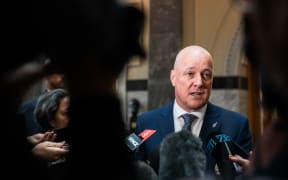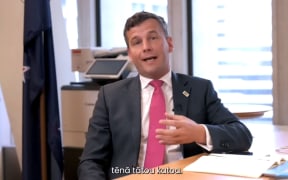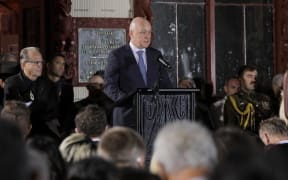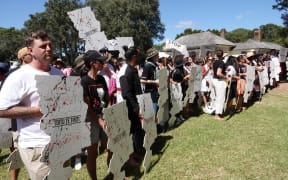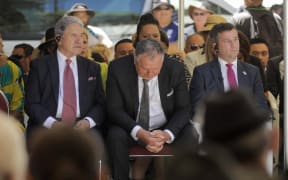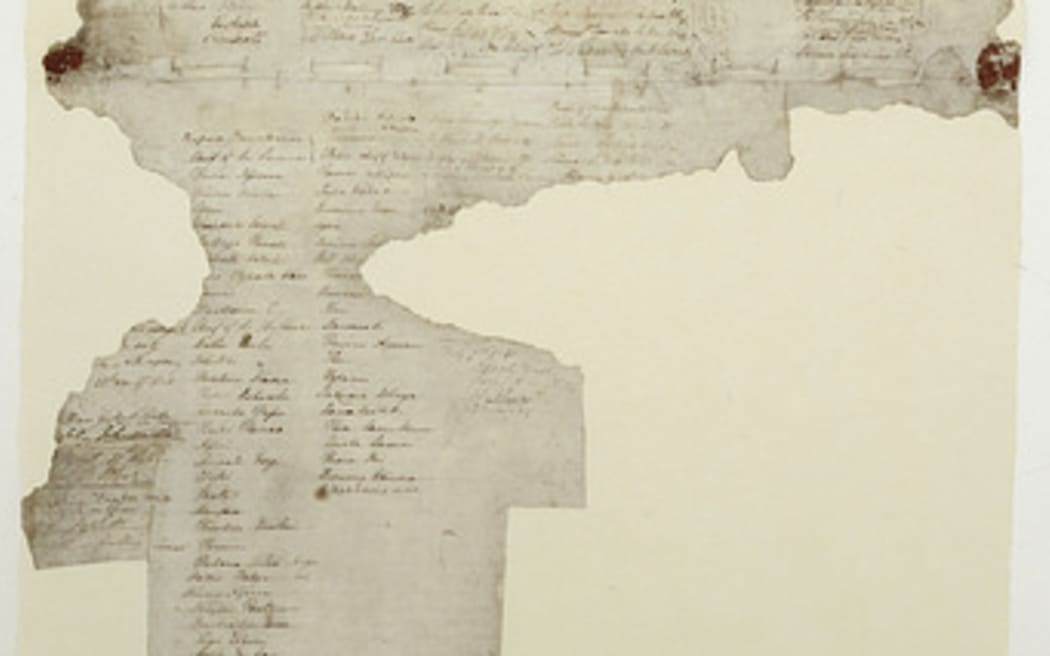
Te Tiriti o Waitangi Photo: supplied
Prime Minister Christopher Luxon has clearly ruled out his party supporting the Treaty Principles Bill beyond Select Committee.
He also says he expects the entire process will be complete by the end of the year.
Speaking to media after the weekly Cabinet meeting, Luxon offered his clearest refutation of the ACT Party's Treaty Principles Bill proposal yet.
"The National Party position - and as leader of the National Party now, not as prime minister - is that we will not be supporting that bill," he said.
"We've ended up in a place where we're actually going to support it through the first reading, there'll be an aeration of the issue through the select committee, but there's no intention to support it beyond that ... we won't be supporting it beyond that."
This was far more definitive than his statements in recent weeks, when Luxon had consistently said there was no "commitment" or "intention" to support the bill after the Select Committee stage, but refused to unequivocally rule it out.
The bill - if passed through Parliament - would put to the public in a referendum whether to put ACT's interpretation of the Treaty Principles into law.
The refutation came a day after a busy Waitangi Day commemoration on Tuesday. Luxon had been asked about his earlier comments on Morning Report, where he defended his speech on the paepae which repeated sections from his speech the previous year.
The speech also appeared to largely avoid mention of the controversial bill, but Luxon said the government was going to make sure it honoured the Treaty.
"The key point is, yes while there are challenges and while there are tensions, people understand our position - which is we'll support it to first reading but not beyond that."
Luxon had made similar comments in the past, which appeared at odds with his insistence at Rātana on saying there was no commitment or intention.
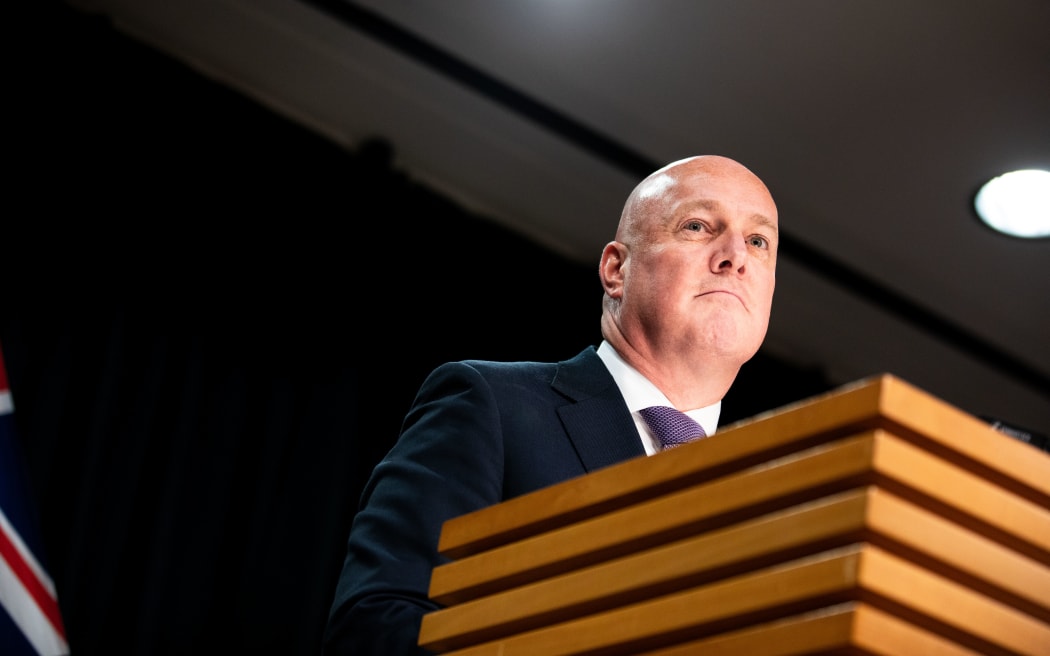
Photo: RNZ / Samuel Rillstone
ACT leader David Seymour at Waitangi had said he thought the public may convince Luxon and National to support it, and on Wednesday morning launched an information campaign saying "beyond the first reading, it will be up to ACT and the public to convince Parliament to support the Bill further".
Before the post-Cabinet briefing, Seymour remained optimistic - and indicated ACT would try again, if this attempt did fail.
"Sometimes these things can take a few goes. I'm hoping for a hole-in-one here, as always. But if you look at End of Life Choice, there were two attempts at legislation, there was a fulsome Select Committee inquiry, and then euthanasia become legal with the End of Life Choice Act.
"That took 14 years, I certainly hope this doesn't take that long."
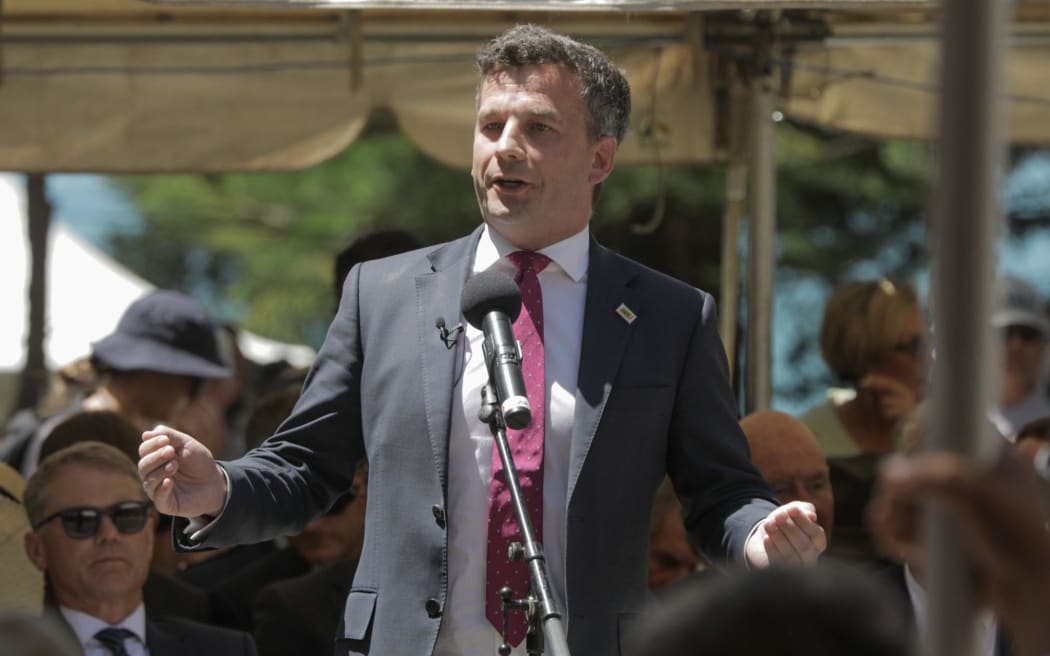
David Seymour speaking at Waitangi Photo: RNZ / Angus Dreaver
He said he believed it needed to happen, as New Zealand could not continue "with the Treaty of Waitangi defined as having some citizens in partnership with the Crown and others with some other status".
"I believe in the democratic process, that the will of the people can be transimitted through our Parliamentary process. It's not always perfect, I'll be the first to admit, but I believe that it's possible."
But on Wednesday afternoon, Luxon suggested there was little chance he would change his mind due to public support.
"I don't think that's a possibility," Luxon said. "It's not something that we support at all."
He said the matter had been an "extensive part" of the coalition negotiations, and the compromise the party had arrived at was probably not satisfactory for either of them.
"I appreciate for the ACT Party and its supporters it was a very important thing, but the reality is we won't be supporting it beyond that."
"We came to a compromise which enables an aeration of the issues through a select committee, we'll support it to select committee but not beyond that."
Asked if that compromise - which will spend weeks at the select committee after being debate in Parliament - was a waste of everyone's time, Luxon said he thought it enabled an "aeration of views" which was "not unhelpful".
"I think the aeration of those views is important."
He said he expected the Treaty Principles Bill process would likely be over before the end of the year.
"We're all going to honour our coalition agreement, I think it's pretty clear that's all we're doing."
Barrister Graeme Edgeler told RNZ instances of a government introducing a bill it did not intend to pass were rare, but not unheard of. Equally, there were instances of a government's mind being changed in the Select Committee stage.
"When Sir John Key was prime minister, National had campaigned on a sentencing reform: 'Life means life for the worst murderers'. ACT supported that, but wanted their Three Strikes sentencing regime as well. National wasn't on board with it, they said 'Okay we'll have a bill, it'll deal with our bit... and we'll add in Three Strikes sentencing stuff as well, but only as far as Select Committee.'
"And then, once it got to Select Committee, the government was talked around, and agreed to support a variation of it going forward."
He said even if the Bill appeared doomed, calling the process a waste of time went a bit far.
"From a Treaty perspective, maybe it doesn't make a lot of sense. But having that public discussion where they might be able to refine their policy and say 'okay, here's where we started six months ago when we started before Select Committee. We've kept them in some form, but actually, here's the policy we will change going forward and campaign on the next election, we've already had public discussion about this, and we listened to you, and here are the changes we made'."
